
Brian Jopling
 Gif, not Jif!
Gif, not Jif!

My name is Brian Jopling. I graduated magna cum laude with a 3.75(cumulative)/3.9(major) GPA from Drexel University with a B.S. in Computer Science & Computer Security (conc).
I am a member of Upsilon Pi Epsilon, the International Honor Society for the Computing and Information Disciplines.
I have been programming since I was in middle school, with my experience comprising of an abundance of languages, including Java, Python, Bash, JavaScript, C++, C#, and many more.
I also enjoy working with robotics, and love tinkering with my Raspberry Pi and Arduino.
With cloud providers such as AWS available at my fingertips, I was drawn toward them since I could create any project I could dream of, and bring it to life in seconds.
Much of my time is spent working on AWS projects, and my expertise has gravitated toward cloud security & serverless technologies (Lambda, DynamoDB, API Gateway).
I have met with the team at AWS who created & maintains AWS Lambda, and provided feedback that actually led to my feature requests being implemented (some of which I even beta tested prior to GA release).
In my free time today, I can be found participating in CTFs, attending local Cloud/Security/Tech meetups, and tackling bug bounties.
I am a co-founder of the official DEF CON group of Philadelphia, DC215. Outside of the computer world,
my time is spent practicing guitar and piano, two instruments I am incredibly passionate about.
I also love coffee.
Below are some of my (mostly FOSS) projects I've deemed worthy of being on my beautiful website.
To see more, visit me on GitHub!
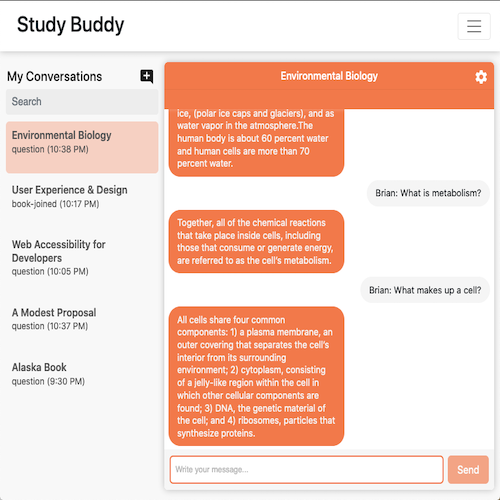
Study Buddy is a designed-for-mobile web application featuring a chatbot powered by machine learning that answers questions based on photos of your textbook pages, using OCR.
Study Buddy was my final project at Drexel. It won first place in the 2019-2020 Drexel Senior Project Showcase's Entrepreneurial Category. I worked in a team of 6 as the project manager, architect, and DevOps engineer.
Ontop of designing the project's architecture, I automated it as Infrastructure as Code using AWS CloudFormation. Study Buddy uses serverless infrastructure such as Lambda, S3, RDS, SageMaker, and API Gateway.
I also created (and automated) a CICD Pipeline using AWS Code Pipeline and Code Build in order to automatically deploy changes to the frontend and changes to the backend.
The Infrastructure as Code (AWS CloudFormation templates) can be found on GitHub.
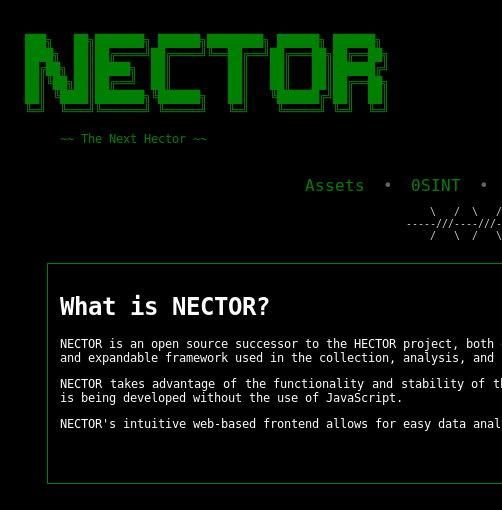
NECTOR is an open source Security Information & Event Manager (SIEM), sponsored by the University of Pennsylvania School of Arts & Sciences.
The purpose of NECTOR is to increase security awareness among institutions by demonstrating potential security vulnerabilities.
NECTOR is a powerful and expandable framework used in the collection, analysis, and sharing of security intelligence information.
NECTOR takes advantage of the functionality and stability of the Django framework, and incorporates a customizable database backend with a minimalistic frontend.
The project is being developed without the use of JavaScript.
NECTOR's intuitive web-based frontend allows for easy data analysis, scan configuration, incident reporting, and more.
NECTOR was a project my supervisor Clay Wells and I created during my time working at the University of Pennsylvania School of Arts & Sciences.
Source code available on GitHub.
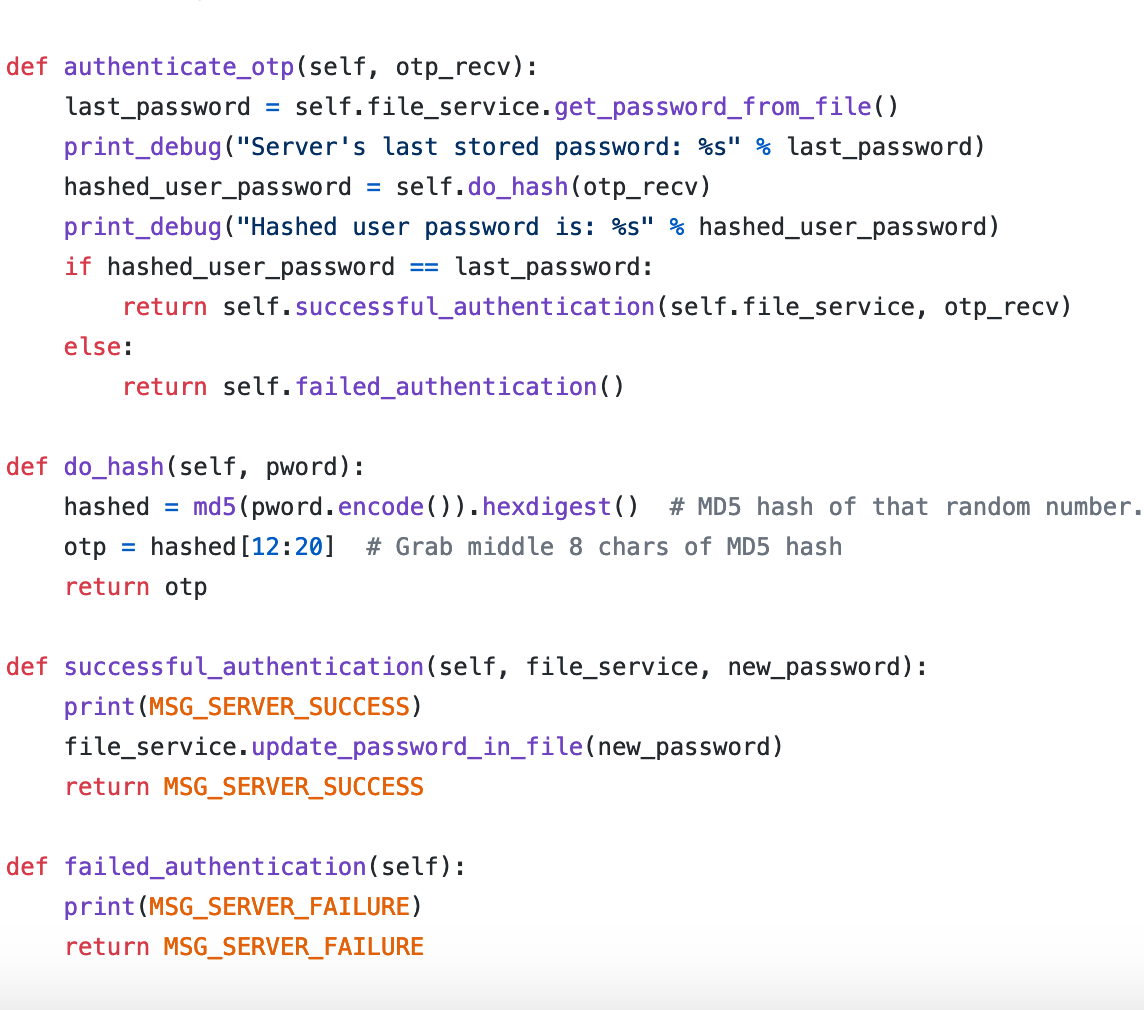
SKey OTP is an implementation of RFC1760, aka the S/KEY One-Time Password System, with a
slightly modified algorithm for generating OTPs, written in Python 3.
This project consists of a client, a server, and a script for generating a shared secret. The project was modeled very similarly to how MFA hardware tokens are designed and used; that is, the client (the hardware token) and the server each know the same secret and perform the same operation on that secret in order to generate the same OTP.
In creating this project, I also contributed to the RFC errata in order to report editorial mistakes in RFC1760.
Source code available on GitHub.
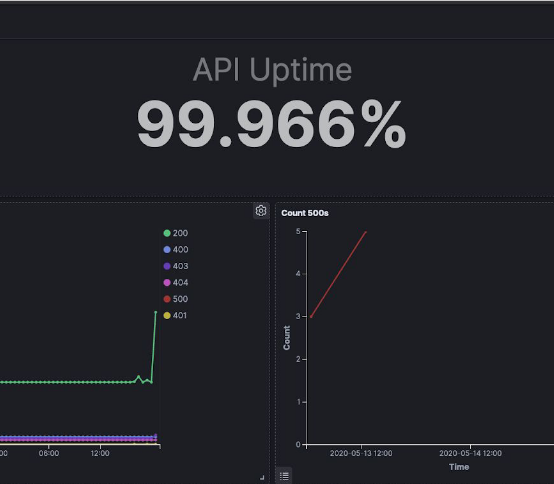
AWS API Gateway w/ Cognito AuthZ Heartbeat Lambda Function
AWS API Gateway w/ Cognito AuthZ Heartbeat Lambda Function is (besides a mouthful of a name) a Lambda function that programmatically sends a request to every resource in an API Gateway mapping that requires Cognito authorization.
This Lambda function was designed to provide a realtime heartbeat of an API I had setup, in order for me to create a Kibana dashboard to show the uptime of that API.
Source code available on GitHub.
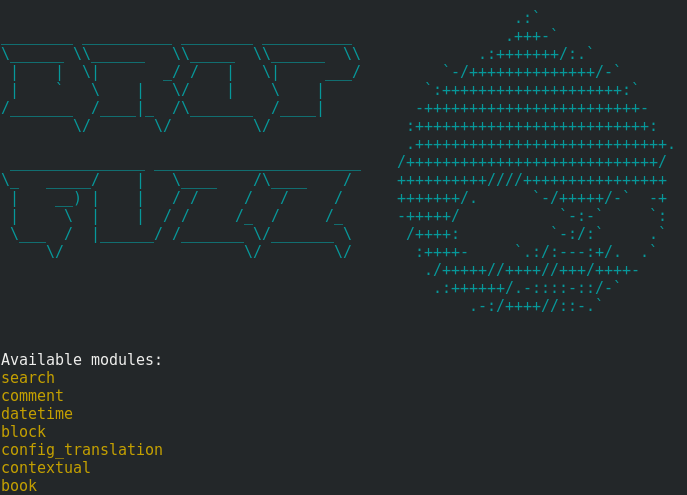
Drop-Fuzz is an open source automated fuzzer designed for use with Drupal sites.
Drop-Fuzz takes advantage of the OWASP ZAP API to incorporate its intense scanning and fuzzing capabilities.
Drop-Fuzz, being designed for Drupal sites, knows exactly how to select, set up, and execute the most concentrated and proper fuzzing for your website.
Source code available on GitHub.
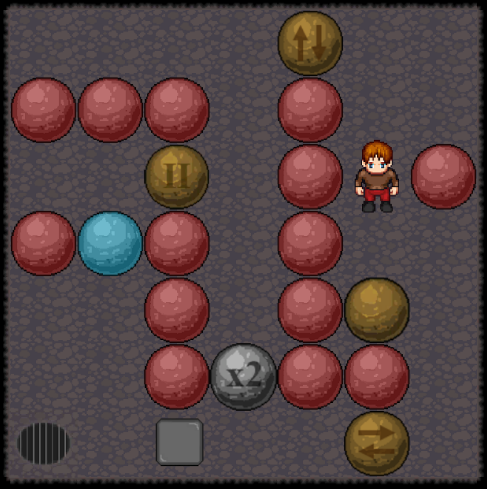
The Cave of Trials is a 2D top-down puzzle game consisting of 50+ levels. I made this game during my freshman year of college in a team of five using the Unity Game Engine and C#. I acted as both the Project Manager and Lead Programmer for my team, as I was the only one who had prior experience with C# and making games in general. In the process of creating this game, I also learned how to properly manage online repositories, such as Bitbucket.
The goal of The Cave of Trials is to successfully move the player to the exit of each level by moving or rearranging
rocks in order to open pathways through the levels. Each rock has its own unique ability. One rock can only move a certain number of times. One will move two spaces. One won’t move at all. One will move one space at a time. One slides until hitting another rock. And the rest... You'll see! Will you be able to escape The Cave of Trials?
Available for Windows, Mac, and Android devices.

Coin Grabber is a 2D game developed as an Android app. In it, you'll experience the exhilarating rush of adrenaline that grabbing coins will give you!
You'll tap and tap, gaining riches which can be used to purchase upgrades and power-ups that will help you grab even more coins.
Wanna be fashionable while grabbing coins? Coin Grabber also features various cosmetics that can be purchased using the coins you grab in-game.
Once you start grabbing coins, you'll never wanna stop.
I created this game right after graduating high school in order to learn the process of making and publishing an app to the app store. I wrote this app in C# using the Unity Game Engine.
Available for Android devices.
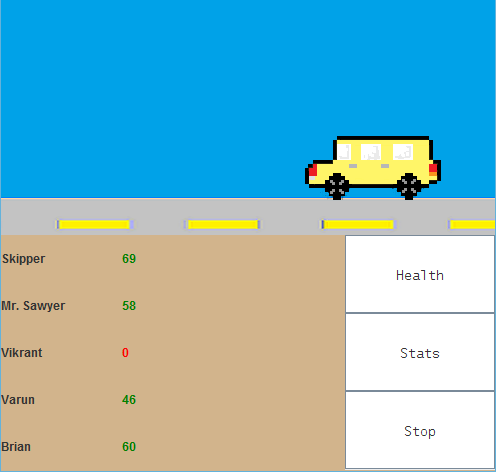
The Sawyer Trail was the first game I ever wrote in Java. I made this as part of my 11th grade Computer Science course in high school.
The game itself is a parody of the popular 70s game, The Oregon Trail. I named the game after my awesome CS teacher, Mr. Sawyer.
In The Sawyer Trail, you take control of a party of 5 that is traveling in a school bus to a hack-a-thon. You must make sure the people in your party do not starve, all while you worry about the bus having enough fuel to finish the journey.
The game prides itself on its replayability, as no two games will ever be alike due to the factor of randomness. With humorous dialogue, a unique story, and hours of entertainment, it's no wonder all my classmates loved this game.
Source code available on GitHub.
The best way to reach me is at brj33@dragons.drexel.edu.
Feel free to follow me on GitHub and Twitter!